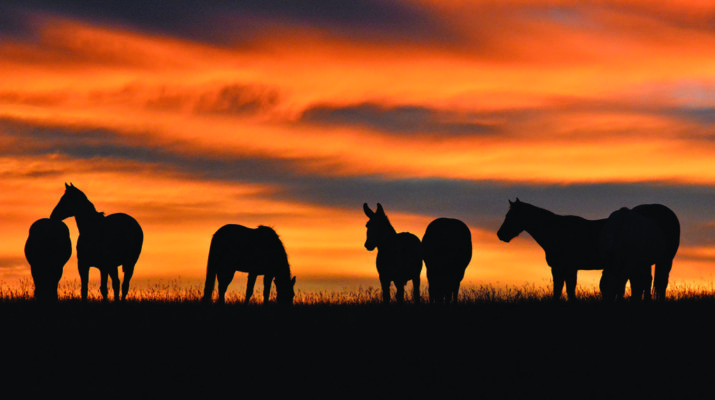To have a herd there must be members. From an objective, outside view point these members’ place in the herd can be roughly defined through careful observation of the interactions taking place among the members. There are leaders, there are followers, there are independent thinkers wishing to be left alone and gregarious participants who want nothing more than to be the center of attention. The health of the herd depends on the active involvement of each individual described within that herd.
If you read this and think were are discussing horses, you are only partly correct. Humans create and participate in their own herds, whether it is family, friends, co-workers or other shoppers in the grocery store. What makes horse herds remarkable and worthy of emulating is the truth, honesty and genuineness of the horse’s nature, personality (some say horsenality) traits that can make us better humans. If you’ve ever witnessed a horse being introduced in to an established herd you undoubtedly saw running around, chasing, posturing of high heads and flagging tails and perhaps more than a few glass-shattering squeals. But after a while, the foot stomping and nerve-racking attack bluffs lessen; the heads lower to begin grazing again and a calm re-enters the herd. This initial wave of energy designed to define and establish each member’s herd position becomes apparent and nothing more needs to be demonstrated.
Here’s the aforementioned traits that we humans should consider adopting which would allow us to be less confrontational and needlessly aggressive toward each member of our herd: horses do not hold grudges meaning they don’t live in the past, horses do not plan for the future meaning they don’t have agendas, horses are experts at living in the present being completely driven by what is in front of them at this exact moment. This allows them the freedom to accept their immediate surroundings and the other herd members present, or not. It is never personal if a horse flees a situation for they are only perceiving a threat to their safety and wish to create some distance between themselves and the threat for a better perspective and re-evaluation of the confrontation. With a short passing of time the horse will allow the situation to be addressed again and this present moment becomes the priority unencumbered with prejudices of past experiences or future expectations.
It is becoming increasingly rare to converse with another human in a meaningful and constructive way. East Point Horspice has over 20 teachers available who are willing to share their equine knowledge and wisdom to perhaps help us become better humans. If you’re in need of an 1100-pound hair-covered therapist contact EPH at (308) 762-3848 of eph@bbc.net. Their long ears are very adept at listening. You need to ask yourself, “Are you an active member of your herd?”

